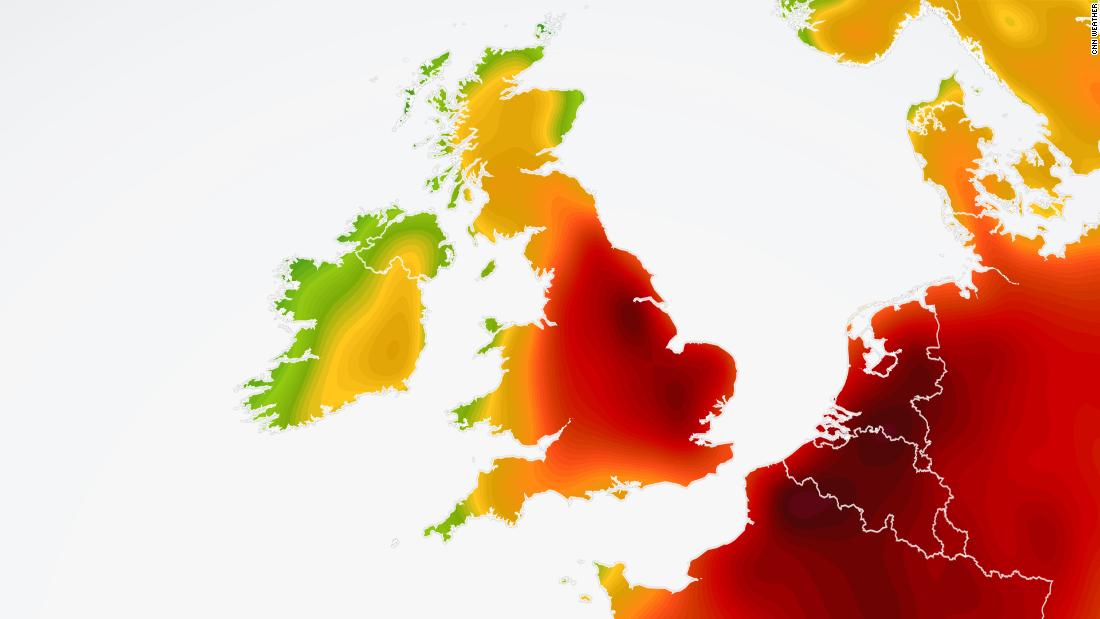
“Not actual weather forecast,” the Met Office’s graphics said. “Examples of plausible weather based on climate projections.”
Well, on Monday and Tuesday, the “plausible” becomes reality — 28 years early.
Simon Lee, an atmospheric scientist at Columbia University in New York, noted the striking similarity between the 2050 outlook and the forecast for early next week in the UK.
In 30 years, this forecast will seem rather typical.
To be clear, this would be truly record-breaking heat. The country’s hottest temperature ever measured was 38.7 degrees Celsius at the Cambridge Botanic Garden in 2019.
The chance of exceeding 40 degrees is “increasing rapidly,” Christidis said.
This is about more than a few uncomfortable days. Extreme heat is among the most deadly weather events — we just don’t tend to see it happening in the moment, when heat stroke and death are attributed to underlying conditions like heart illness or respiratory disease.
Unlike flooding or wildfires destroying a town, the sense of urgency around a deadly heat wave is not so dramatic, said Kristie Ebi, a climate and health researcher at the University of Washington, underscoring that heat is a “silent killer.”
“When it’s hot outside, it’s just plain hot outside — and so it’s a relatively silent killer,” Ebi previously told CNN. “People are generally unaware and don’t think about the risks associated with these high temperatures.”
She also said that it’s important to understand that the climate is not like what it was even just a few years ago. The climate crisis is already affecting our lives today, and it will continue to hit the most vulnerable.
“We all look forward to the summer as we enjoy the warmer temperatures, but there are people who are at risk at higher temperatures,” she said. “As the climate continues to change or higher temperatures get higher than what we experienced when we were younger, people need to pay more attention, particularly to those around you.”
CNN’s Rachel Ramirez contributed reporting to this analysis.
